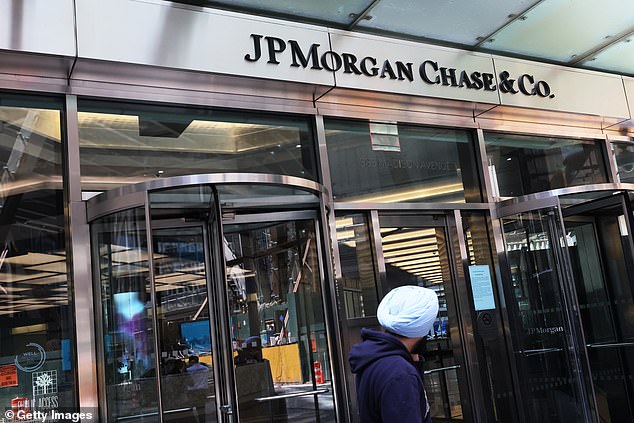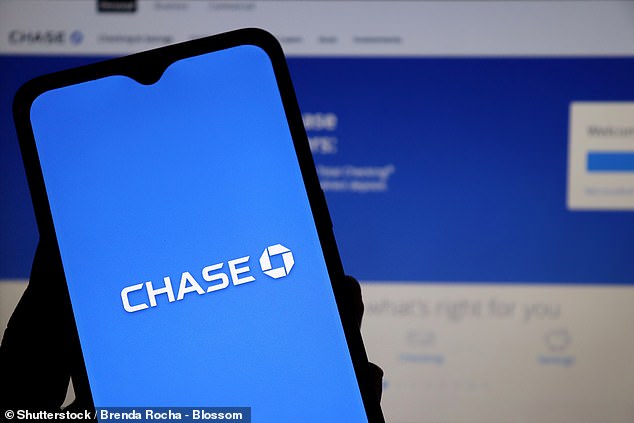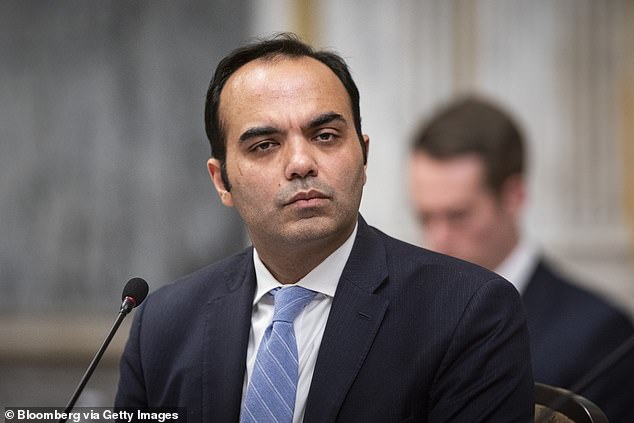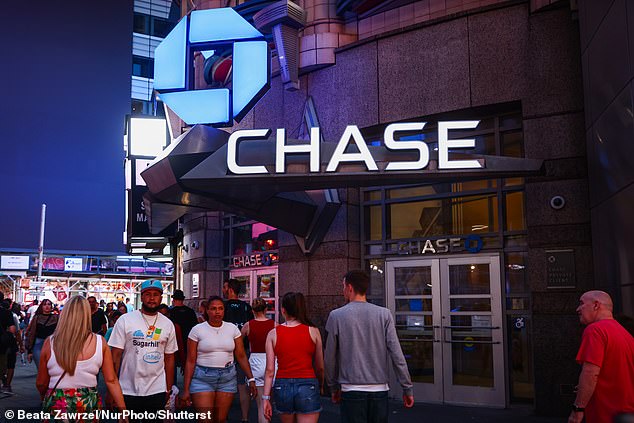One of America’s biggest banks issues stark warning about looming checking account charges
One of America’s largest banks has issued a dire warning about looming charges on checking accounts.
JPMorgan Chase’s CEO of consumer and community banking has announced plans to pass on the costs of stricter regulations to its customers.
Marianne Lake warned that Consumer Financial Protection Bureau rules capping overdraft and late fees will make regular banking significantly more expensive for Americans.
She said Chase would have to charge its 86 million customers for services that are now free, such as checking accounts, if the rules take effect.
“The changes will be broad, far-reaching and significant,” she said The Wall Street Journal. “The people who will be hit hardest are those who can least afford it, and it will be harder to get credit.”
Marianne Lake, a top executive at one of America’s largest banks, has issued a dire warning about looming charges on checking accounts

JPMorgan Chase’s CEO of consumer and community banking has announced plans to pass on the costs of stricter regulations to its customers
The Consumer Financial Protection Bureau imposes an $8 limit on late payments on credit cards and a $3 limit on overdraft fees.
Consideration is also being given to capping debit card fees and the amounts banks can charge companies like Venmo and CashApp for access to and use of customer data.
Lake is confident that the largest US banks will follow Chase’s lead and pass the costs on to their customers.
She stressed that basic services people are used to, such as checking accounts, credit score trackers and planning tools, will likely no longer be free.
“It’s not practical to offer a lot of services for free if we can’t tap into those profit sources,” she said.
But Dennis Kelleher, chairman of economic think tank Better Markets, said: ‘The banks say their only option is to pass the costs on to their customers, but that’s not true.

Lake warned that Consumer Financial Protection Bureau rules capping overdraft and late fees will make regular banking significantly more expensive for Americans.

The Consumer Financial Protection Bureau, led by Rohit Chopra, is proposing an $8 cap on late credit card payments and a $3 cap on overdraft fees

Lake said Chase would have to charge its 86 million customers for services that are now free, such as checking accounts, if the rules go into effect
‘Banks are once again disguising their efforts to maximise their own profits by showing what is good or bad for their customers.’
Banks have appealed and filed lawsuits, primarily in the Northern District of Texas, to block the changes.
The rule to cap credit card late fees was passed by the Consumer Financial Protection Bureau in March, but a coalition of banks filed a lawsuit to prevent it from becoming law. It is now awaiting appeal in court.
The average late payment penalty from U.S. banks is $32 per statement. By reducing the penalty to a quarter of that level, 45 million credit card users would save an average of $220 per year.
According to the agency, banks have been increasing late payment fees over the past decade, using “the excuse of inflation” to create an “irresistible revenue stream.”
The rule will especially benefit the poorest Americans: those who often default on their credit card debt and incur high costs as a result.
Although the limit is not yet in effect, some companies are willing to pass the costs on to their customers.
However, Dan Goerlich, partner at PricewaterhouseCoopers, does not think it will be easy to pass on the costs.
“Most customers today have easy and hassle-free access to banking,” he said.
‘It may be disadvantageous to offer services at zero cost, but banks may be forced to do so by other competitors who want to offer their customers cheap services.’
